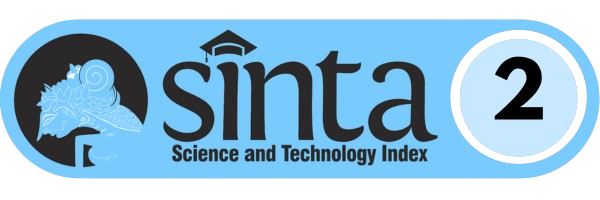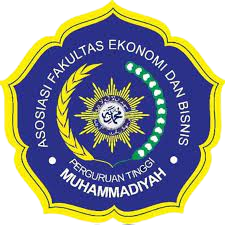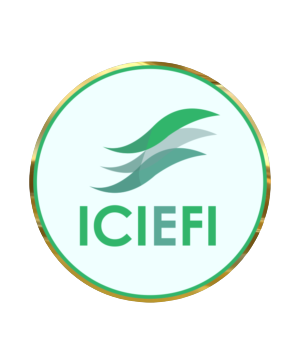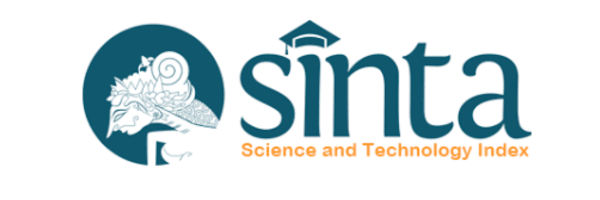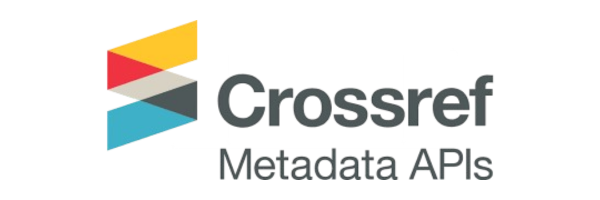The Effect of Government Expenditure on Economic Growth in Indonesia
DOI:
https://doi.org/10.24269/ekuilibrium.v16i1.2021.pp24-38Abstract This study aims to examine and analyze the effect of economic growth classified as personnel expenditure, material expenditure, capital expenditure, interest payments, subsidies and social expenditure in Indonesia. The data in this study are time series data from 2005 to 2019. The hypothesis test uses the multiple linear regression method with SPSS 26. The results of testing government expenditure variables during the period 2005 to 2019 shows that components of central government expenditure include personnel, material, capital, interest payments, subsidies and social expenditure have a significant effect simultaneously on economic growth. There is a significant positive effect on the relationship between the variable personnel expenditure and material expenditure on economic growth. There is a significant negative effect on the relationship between the variable capital expenditure on economic growth. The other three variables, which include debt interest payments, subsidies and social expenditure, do not have a significant effect on economic growth.
References
Abu-Bader, S., & Abu-Qarn, A. S. (2003). Government Expenditures, Military Spending and Economic Growth: Causality evidence from Egypt, Israel, and Syria. Journal of Policy Modeling, 25(6–7), 567–583. https://doi.org/10.1016/S0161-8938(03)00057-7
Acemoglu, D. (2012). Introduction to Economic Growth. Journal of Economic Theory, 147(2), 545–550. https://doi.org/10.1016/j.jet.2012.01.023
Afifah, E. N. (2008). Kajian Kerangka Subsidi di Indonesia. Institute for Development of Economics and Finance (INDEF), 9(3), 1–111.
Anitasari, M., & Soleh, A. (2015). Pengaruh Pengeluaran Pemerintah terhadap Pertumbuhan Ekonomi di Provinsi Bengkulu. EKOMBIS REVIEW: Jurnal Ilmiah Ekonomi dan Bisnis, 3(2), 117–127. https://doi.org/10.37676/ekombis.v3i2.139
Arjomand, M., Emami, K., & Salimi, F. (2016). Growth and Productivity: the Role of Budget Deficit in the MENA Selected Countries. Procedia Economics and Finance, 36(16), 345–352. https://doi.org/10.1016/s2212-5671(16)30046-6
Azwar. (2016). Peran Alokatif Pemerintah melalui Pengadaan Barang/Jasa dan Pengaruhnya terhadap Perekonomian Indonesia. Kajian Ekonomi Keuangan, 20(2). Retrieved from http://fiskal.kemenkeu.go.id/ejournal
Bachtiar, H. F., Sofilda, E., & Kusumastuti, S. Y. (2015). Pembayaran Bunga Utang , dan Subsidi terhadap Pertumbuhan Ekonomi Indonesia Tahun 1999-2013. Seminar Nasional Cendekiawan 2015, 682–688. Jakarta Barat: Lembaga Penelitian Universitas Trisakti.
Badan Pusat Statistik. (2020a). Data BPS. Retrieved January 28, 2021, from https://www.bps.go.id/
Badan Pusat Statistik. (2020b). Pendapatan Nasional (National Income of Indonesia) 2015-2019. Jakarta: Badan Pusat Statistik.
Bawono, I. R., Halim, A., & Lord, B. (2012). Public Sector Performance Measurement and Budget Allocation : an Indonesian Experiment. Management Accounting Confrence, 1–22.
Bawono, I. R., & Setyadi, E. (2020). Panduan Penggunaan dan Pengelolaan Dana Desa. Jakarta: Grasindo.
Bramantya, A. W., & Sulasmiyati, S. (2015). Pengaruh Suku Bunga, Utang Luar Negeri, Tingkat Pengangguran terhadap Pertumbuhan Ekonomi (Studi pada 5 Negara dengan Populasi Terbesar di Dunia 2006-2015). Jurnal Administrasi Bisnis, 48(1), 147–154.
Cangiotti, N., & Sensi, M. (2020). Exact solutions for a Solow-Swan Model with Non-Constant Returns to Scale. 1–10. Retrieved from http://arxiv.org/abs/2008.05875
Chu, T. T., Hölscher, J., & McCarthy, D. (2020). The Impact of Productive and Non-Productive Government Expenditure on Economic Growth: an Empirical Analysis in High-income Versus Low- to Middle-Income Economies. Empirical Economics, 58(5), 2403–2430. https://doi.org/10.1007/s00181-018-1616-3
Cutler, T. (2015). New Managerialism and New Public Sector Management. In International Encyclopedia of the Social & Behavioral Sciences: Second Edition (Second Edi, Vol. 16). https://doi.org/10.1016/B978-0-08-097086-8.28063-X
Deswantoro, D. B., Ismail, A., & Hendarmin, H. (2017). Pengaruh Belanja Daerah Berdasarkan Klasifikasi Ekonomi terhadap Pertumbuhan Ekonomi dan Kesejahteraan Masyarakat di Kabupaten/Kota Provinsi Kalimantan Barat Tahun 2010 - 2015. Jurnal Ekonomi Bisnis Dan Kewirausahaan, 6(3), 187. https://doi.org/10.26418/jebik.v6i3.23256
Dinh Thanh, S., Hart, N., & Canh, N. P. (2020). Public Spending, Public Governance and Economic Growth at the Vietnamese provincial level: A Disaggregate Analysis. Economic Systems, (May 2019), 100780. https://doi.org/10.1016/j.ecosys.2020.100780
DudzeviÄiÅ«tÄ—, G., Å imelytÄ—, A., LiuÄvaitienÄ—, A. (2017). Government Expenditure and Economic Growth in the European Union Countries Gitana. International Journal of Social Economics. https://doi.org/https://doi.org/10.1108/IJSE-12-2016-0365
Firth, L., & Mellor, D. (2000). Learning and the New Growth Theories: Policy Dilemma. Research Policy, 29(9), 1157–1163. https://doi.org/10.1016/S0048-7333(99)00078-5
Hasnul, A. gifari. (2016). The Effects of Government Expenditure on Economic Growth : the Case of Malaysia. MPRA Paper No. 71254. Retrieved from https://mpra.ub.unimuenchen.de/71254/1/MPRA_paper_71254.pdf
Hendrajaya, I. P., Putra, I. G. J. Ek., & Julihartha, I. G. P. K. (2020). Sistem Informasi Geografis Pemetaan Masyarakat Penerima Bantuan Sosial Tepat Sasaran pada Desa Sulangai Berbasis Web. Jurnal Teknologi dan Informasi Komputer, 6(3), 278–287.
Irandoust, M. (2019). Wagner on Government Spending and National Income: a New Look at an Old Relationship. Journal of Policy Modeling, 41(4), 636–646. https://doi.org/10.1016/j.jpolmod.2019.02.003
Junaedi, D., & Salistia, F. (2020). Pengaruh Utang Luar Negeri terhadap Perekonomian dan Kemiskinan : Komparasi Antarezim Anggaran di Indonesia. Al -Kharaj: Jurnal Ekonomi, Keuangan & Bisnis Islam, 1(2), 1–21.
Karagöl, E. (2002). The Causality Analysis of External Debt Service and GNP : The Case of Turkey. Central Bank Review, 39–64.
Kementerian Keuangan Republik Indonesia. (2019). Informasi APBN 2019. Retrieved from www.anggaran.kemenkeu.go.id
Kementerian Keuangan Republik Indonesia. (2020a). Bantuan Sosial dan Akuntabilitasnya. Retrieved from www.kemenkeu.go.id
Kementerian Keuangan Republik Indonesia. (2020b). Data Realisasi Triwulanan APBN. Retrieved from http://www.data-apbn.kemenkeu.go.id/
Kristanto, S. B. (2009). Pengaruh Ukuran Pemerintahan , Pendapatan Asli Daerah (PAD) dan Belanja Modal sebagai Prediktor Kelemahan Pengendalian Internal. Jurnal Akuntansi UKRIDA, 9(1), 1–17.
Lantu, Y. S. M., Koleangan, R. A. M., & Rotinsulu, T. O. (2019). Pengaruh Belanja Pemerintah terhadap Pertumbuhan Ekonomi dan Pengentasan Kemiskinan di Kota Bitung. Jurnal Pembangunan Ekonomi Dan Keuangan Daerah, 19(2), 1–19. https://doi.org/10.35794/jpekd.15785.19.2.2017
Lisandri, Rizani, F., & Akhmad Yafiz Syam. (2017). Pengaruh PAD dan DAU terhadap Pertumbuhan Ekonomi dengan Belanja Modal sebagai Variabel Intervening pada Pemerintah Kabupaten/Kota di Provinsi Kalimantan Selatan. Jurnal Spread, 7(2), 111–122.
Museru, M., Toerien, F., & Gossel, S. (2014). The Impact of Aid and Public Investment Volatility on Economic Growth in Sub-Saharan Africa. World Development, 57(1966), 138–147. https://doi.org/10.1016/j.worlddev.2013.12.001
Nurudeen, A., & Usman, A. (2010). Government Expenditure and Economic Growth in Nigeria, 1970-2008: a Disaggregated Analysis. Business and Economics Journal, 1(1), 1–11.
Palley, T. (2017). The General Theory at 80: Reflections on the History and Enduring Relevance of Keynes’ Economics. Investigacion Economica, 76(301), 87–101. https://doi.org/10.1016/j.inveco.2017.12.003
PiÄ™tak, Å. (2014). Review of Theories and Models of Economic Growth. Comparative Economic Research. Central and Eastern Europe, 17(1), 45–60. https://doi.org/10.2478/cer-2014-0003
Pratolo, S., & Yudha, B. S. (2012). Peran Faktor-Faktor Keuangan dan Pertumbuhan Ekonomi terhadap Penerimaan Pendapatan Asli Daerah. Jurnal Akuntansi Dan Investasi, 12(2), 144–160.
Santoso, I. H. (2012). Dampak Krisis Ekonomi terhadap Kinerja Ekonomi Nasional dan Kemiskinan. Journal of Chemical Information and Modeling, 10(1), 71–96.
Shindo, Y. (2010). The Effect of Education Subsidies on Regional Economic Growth and Disparities in China. Economic Modelling, 27(5), 1061–1068. https://doi.org/10.1016/j.econmod.2010.04.003
Solikin, A. (2018). Pengeluaran Pemerintah dan Perkembangan Perekonomian (Hukum Wagner) di Negara Sedang Berkembang: Tinjauan Sistematis. Info Artha, 2(1), 65–89. https://doi.org/10.31092/jia.v2i1.237
Solow, R. M. (1999). Chapter 9 Neoclassical Growth Theory. Handbook of Macroeconomics, 1(PART A), 637–667. https://doi.org/10.1016/S1574-0048(99)01012-5
Sudibyo, Y. A., & Jianfu, S. (2015). Institutional Theory for Explaining Corruption: an Empirical Study on Public Sector Organizations in China and Indonesia. Corporate Ownership and Control, 13(1CONT8), 817–958. https://doi.org/10.22495/cocv13i1c8p1
Sujianto, A. E., & Azmi, M. F. U. (2020). Associative Study on Government Spending, Inflation, Trade Balance, and Gross Domestic Product. Ekuilibrium : Jurnal Ilmiah Bidang Ilmu Ekonomi, 15(1), 27. https://doi.org/10.24269/ekuilibrium.v15i1.2363
Sukartini, Ni Made; Saleh, S. (2012). Pengujian Hukum Wagner dalam Perekonomian Indonesia Kajian Pengeluaran Pemerintah Pusat dan Pemerintah Provinsi. Bisnis Dan Ekonomi (JBE), 19(1), 1–24.
Sukmawati, A., & Siregar, H. (2014). Implementasi Penyusunan Rencana Kerja dan Anggaran Belanja Kementerian Pertanian Sektor Pertanian Tahun 2005-2012. Jurnal Manajemen & Agribisnis, 10(3), 182–191. https://doi.org/10.17358/jma.10.3.182-191
Wahyunadi, W. (2019). Konvergensi Pertumbuhan Ekonomi di Nusa Tenggara Barat Periode Tahun 2010 – 2015. Elastisitas - Jurnal Ekonomi Pembangunan, 1(2), 79–90. https://doi.org/10.29303/e-jep.v1i2.9
Wu, S. Y., Tang, J. H., & Lin, E. S. (2010). The Impact of Government Expenditure on Economic Growth: How Sensitive to the Level of Development? Journal of Policy Modeling, 32(6), 804–817. https://doi.org/10.1016/j.jpolmod.2010.05.011.
Downloads
Published
How to Cite
Issue
Section
License
Retained Rights/Terms and Conditions of Publication
1. As an author you (or your employer or institution) may do the following:
- make copies (print or electronic) of the article for your own personal use, including for your own classroom teaching use;
- make copies and distribute such copies (including through e-mail) of the article to research colleagues, for the personal use by such colleagues (but not commercially or systematically, e.g. via an e-mail list or list server);
- present the article at a meeting or conference and to distribute copies of the article to the delegates attending such meeting;
- for your employer, if the article is a ‘work for hire’, made within the scope of your employment, your employer may use all or part of the information in the article for other intra-company use (e.g. training);
- retain patent and trademark rights and rights to any process, procedure, or article of manufacture described in the article;
- include the article in full or in part in a thesis or dissertation (provided that this is not to be published commercially);
- use the article or any part thereof in a printed compilation of your works, such as collected writings or lecture notes (subsequent to publication of the article in the journal); and prepare other derivative works, to extend the article into book-length form, or to otherwise re-use portions or excerpts in other works, with full acknowledgement of its original publication in the journal;
- may reproduce or authorize others to reproduce the article, material extracted from the article, or derivative works for the author's personal use or for company use, provided that the source and the copyright notice are indicated, the copies are not used in any way that implies RCEPM-LIPI endorsement of a product or service of any employer, and the copies themselves are not offered for sale.
All copies, print or electronic, or other use of the paper or article must include the appropriate bibliographic citation for the article's publication in the journal.
2. Requests from third parties
Although authors are permitted to re-use all or portions of the article in other works, this does not include granting third-party requests for reprinting, republishing, or other types of re-use. Requests for all uses not included above, including the authorization of third parties to reproduce or otherwise use all or part of the article.
3. Author Online Use
- Personal Servers. Authors and/or their employers shall have the right to post the accepted version of articles pre-print version of the article, or revised personal version of the final text of the article (to reflect changes made in the peer review and editing process) on their own personal servers or the servers of their institutions or employers without permission from Universitas Muhamamdiyah Ponorogo, provided that the posted version includes a prominently displayed Universitas Muhamamdiyah Ponorogo copyright notice and, when published, a full citation to the original publication, including a link to the article abstract in the journal homepage. Authors shall not post the final, published versions of their papers;
- Classroom or Internal Training Use. An author is expressly permitted to post any portion of the accepted version of his/her own articles on the author's personal web site or the servers of the author's institution or company in connection with the author's teaching, training, or work responsibilities, provided that the appropriate copyright, credit, and reuse notices appear prominently with the posted material. Examples of permitted uses are lecture materials, course packs, e-reserves, conference presentations, or in-house training courses;
- Electronic Preprints. Before submitting an article to an Ekuilibrium: Jurnal Ilmiah Bidang Ilmu Ekonomi, authors frequently post their manuscripts to their own web site, their employer's site, or to another server that invites constructive comment from colleagues. Upon submission of an article to Ekuilibrium: Jurnal Ilmiah Bidang Ilmu Ekonomi, an author is required to transfer copyright in the article to Economy Faculty Universitas Muhammadiyah Ponorogo, and the author must update any previously posted version of the article with a prominently displayed Economy Faculty Universitas Muhammadiyah Ponorogo copyright notice. Upon publication of an article by the Universitas Muhammadiyah Ponorogo, the author must replace any previously posted electronic versions of the article with either (1) the full citation to the work with a Digital Object Identifier (DOI) or link to the article abstract in Ekuilibrium: Jurnal Ilmiah Bidang Ilmu Ekonomi journal homepage, or (2) the accepted version only (not the final, published version), including the Economy Faculty Universitas Muhammadiyah Ponorogo copyright notice and full citation, with a link to the final, published article in journal homepage.
4. Articles in Press (AiP) service
Economy Faculty Universitas Muhammadiyah Ponorogo may choose to publish an abstract or portions of the paper before we publish it in the journal. Please contact our Production department immediately if you do not want us to make any such prior publication for any reason, including disclosure of a patentable invention.
5. Author/Employer Rights
If you are employed and prepared the article on a subject within the scope of your employment, the copyright in the article belongs to your employer as a work-for-hire. In that case, Economy Faculty Universitas Muhammadiyah Ponorogo assumes that when you sign this Form, you are authorized to do so by your employer and that your employer has consented to the transfer of copyright, to the representation and warranty of publication rights, and to all other terms and conditions of this Form. If such authorization and consent has not been given to you, an authorized representative of your employer should sign this Form as the Author.
6. RCEPM-LIPI Copyright Ownership
It is the formal policy of Economy Faculty Universitas Muhammadiyah Ponorogo to own the copyrights to all copyrightable material in its technical publications and to the individual contributions contained therein, in order to protect the interests of the Economy Faculty Universitas Muhammadiyah Ponorogo, its authors and their employers, and, at the same time, to facilitate the appropriate re-use of this material by others. Economy Faculty Universitas Muhammadiyah Ponorogo distributes its technical publications throughout the world and does so by various means such as hard copy, microfiche, microfilm, and electronic media. It also abstracts and may translate its publications, and articles contained therein, for inclusion in various compendiums, collective works, databases and similar publication.
7. Licensing Terms
Ekuilibrium is licensed under a Creative Commons Attribution-ShareAlike 4.0 International License.
Permissions beyond the scope of this license may be available at https://journal.umpo.ac.id/


